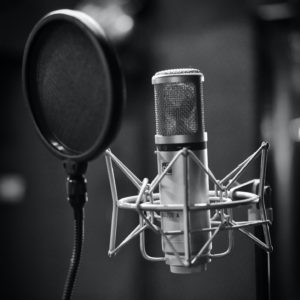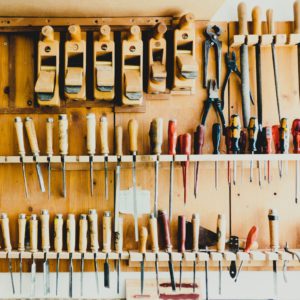Today, I wanted to discuss how you can make French language podcasts more accessible and enjoyable as a beginner learner.
I totally understand that listening to French language podcasts can be difficult. I’m a beginner. And for me, native speakers’ pace and accent can be difficult to follow. But, with a few simple tips, you can make the most of these podcasts and improve your listening comprehension skills.
Begin with beginner podcasts
Common sense, right? Well, a bit more invovled than it might seem.
Look for podcasts that are specifically tailored for French language learners. These podcasts will often feature slower speech and simpler vocabulary, making them more approachable to new listeners.
Many online blogs direct readers to various French podcasts devoted to language instruction. Here, here, and here. These are good, for sure. However, these types of podcasts are not my focus at Bitesize French.
I like podcasts that are designed for native speakers, or at least those that do not alternate between French and English.
Some blogs refer to these as intermediate podcasts, maybe. But I’m an A1 learner and I find I can follow some of these episodes, even without following the transcript. While I love podcasts meant for native speakers, it’s not easy for me to dive into an episode of Manger or Transfert.
If you enjoyed the Balades podcast, here are some further episodes and podcasts to check out:
“Inner French” – This podcast was produced by a French teacher who noticed that while his students could read news articles, they failed to understand YouTube videos. That describes me. While this is more intermediate (it even states so on their logo! ), I enjoy it since each episode has votes, so you can locate ones that have been voted more accessible.
“Le français avec Pierre” – Produced by a French teacher, this podcast covers a wide range of topics such as grammar, vocabulary, and conversation skills. It is spoken at a slower tempo and with fewer words, making it suitable for beginners.
“French Voices” – Produced by a French teacher, each episode includes a discussion and interview that provides excellent listening practice.
“Le français authentique” – Produced by a French teacher, this podcast covers a variety of topics such as grammar, vocabulary, and conversation skills. It is spoken at a slower tempo and with fewer words, making it suitable for beginners.
“Le Journal en Français Facile” – This one is definitely harder for me as an A1 learner. Produced by the French news channel RFI, this podcast provides a slow, easy-to-understand rendition of the day’s news. It’s an excellent resource for beginners who want to enhance their listening comprehension and remain up to date on current events.
These podcasts are less focused on vocabulary and grammatical courses and more on dialogue and real-life settings, which can make them more interesting and entertaining for beginners. There will always be some difficulty, and you will encounter new words, but persist with it.
Make use of the transcript
Many French language podcasts include a transcript, which can be a valuable resource for beginners. Reading the transcript along with the podcast can help you comprehend the vocabulary and grammar used in the podcast. Of course, there are advantages and disadvantages to using a transcript when listening to a French podcast.
One of the most significant advantages of using a transcript is that it can greatly improve your listening comprehension. With the written words in front of you, you can follow along and better grasp what is being said. This is especially useful for beginners who are unfamiliar with the pace and accent of native speakers. Reading along with the transcript might also help you learn new vocabulary and grammar structures.
Another advantage of using a transcript is that you can go back and review sections of the audio that you didn’t get the first time. To better grasp the topic, you can go back and read over the script again. This is especially useful if you are attempting to learn a new topic or skill, and perfect for language acquisition.
There are, however, some disadvantages to using a transcript while listening to a French podcast. One of the biggest disadvantages is that it can be a source of distraction. You might find yourself reading the transcript rather than listening to the podcast. And, if you rely on the text too much, you may not improve your listening skills as much as you would if you listened without it. A true tradeoff.
Another disadvantage is that not all French podcasts contain transcripts. And, even when the transcript exists, it may be incorrect. This can cause more confusion and may mean your learning the wrong thing. We spend a lot of time hunting for accurate transcripts and proofing them with native speakers to make sure the quizzes on site are accurate.
It is important to use transcripts sparingly and not over rely on them.
Regularly practice listening
Practice is essential for increasing your listening comprehension skills. Even if you don’t understand everything, set aside some time each day to listen to a French language podcast. Your ears will become accustomed to the sound of the language as you listen, and your comprehension will gradually increase.
Our best suggestion is to make it a reality! Schedule a time when you will listen to a French podcast on your calendar. Get excited about it and look forward to it. It does not have to be an hour. If you’re just getting started, try setting aside 5 minutes. Gradually increase your confidence. It should be enjoyable. Yes, there will be occasions when you miss your allocated time or find it difficult to do the scheduled practice. This will be much easier with the correct tools, such as our daily quiz or by making a playlist of podcasts to listen to (on Apple Podcasts or Spotify).
Listen to a variety of podcasts
Podcasts in French come in different kinds and sizes, from news and current events to culture and entertainment. Listen to a range of podcasts to become acquainted with various accents and registers of the language.
There are thousands of French podcasts available. How am I supposed to filter it down and find one to listen to?
- Define your objectives and interests: Before you start looking for a French podcast, you should first determine your aims and hobbies. Do you want to just focus on French learning (a traditional beginner podcast), learn about French culture (a podcast in French about French culture, see above), or simply practice your French conversation skills (try a podcast with interviews)? Knowing your objectives will allow you to narrow down your search and select a podcast that matches your interests.
- Research and request recommendations: Begin by looking for French podcasts online and reading reviews and descriptions to get an idea of what each one has to offer. Inquire with other French learners or native speakers for advice; they may have some based on your aims and interests.
- Listen, listen, narrow down, shuffle, and repeat! Just start listening to episodes and see what works for you. I’m still discovering new podcasts, and sometimes it takes me an episode or two to really get into it. Be patient with yourself and keep an open mind!
Make a playlist of episodes and podcasts
Once you’ve compiled a list of potential podcasts, begin by experimenting with them. Listen to a few episodes of each and note which you like and which you don’t. When I listen to English podcasts, I focus on the latest ones as I want to be able to keep up with banter with friends. With French podcasts, I’m not so worried about the release date, and I’ll often start at the beginning. That means I’ll listen to episodes that might be 5+ years old. As long as it’s not a news podcast, it really doesn’t matter.
It’s even OK to listen to podcast episodes again. Don’t fall too much into that pattern, but occasionally relistening will show you how much you’ve advanced.
Our daily quiz on site is a great way to make sure you get scheduled practice daily, all you need is a few minutes to get a little listening practice.
Take notes
As you listen to the podcast, make a note of any new vocabulary or language structures that you come across. This will help you better retain new concepts. You don’t need to write down everything from the podcast. I usually focus on vocab words or new grammar structures I hear.
How can I look up a word if there isn’t a transcript available?
if you don’t know how to spell a new word you hear, here are a couple of ideas to try:
- Use a speech-to-text option on a translation app, your phone, or website to search up terms you hear in French. Many translation apps and websites, like Google Translate offer a microphone icon that allows you to say a word or phrase into the app and have it transcribe it for you so you can check the correct spelling and meaning. This works for me when I don’t know the word.
- Use context cues or the way the word sounds to look it up in a bilingual dictionary; this may help you understand the word and its meaning better.
- You might also turn to Facebook or other French learner forums or groups where you can ask native speakers to spell the term for you or provide further information about it.
It’s important to remember that looking up words takes time and work, but with consistent practice, you’ll be able to improve your spelling and vocabulary. Try not to get bogged down by new vocabulary. Our belief is that vocab will come with continued listening. You’ll start to recognize common words with more practice.
Regular practice is essential for increasing your listening comprehension and fluency. Aim to listen to French podcasts daily, and you’ll be on track to exposing yourself to as much French as possible.
Remember that choosing the ideal podcast for you may take some time and work. With a clear goal and consistent practice, you’ll be able to find a French podcast that matches your interests and helps you develop your French language skills.
By following these steps, you will be able to make French language podcasts more accessible and enjoyable. Remember that learning a new language takes time and patience, so keep up the practice, and happy listening!








